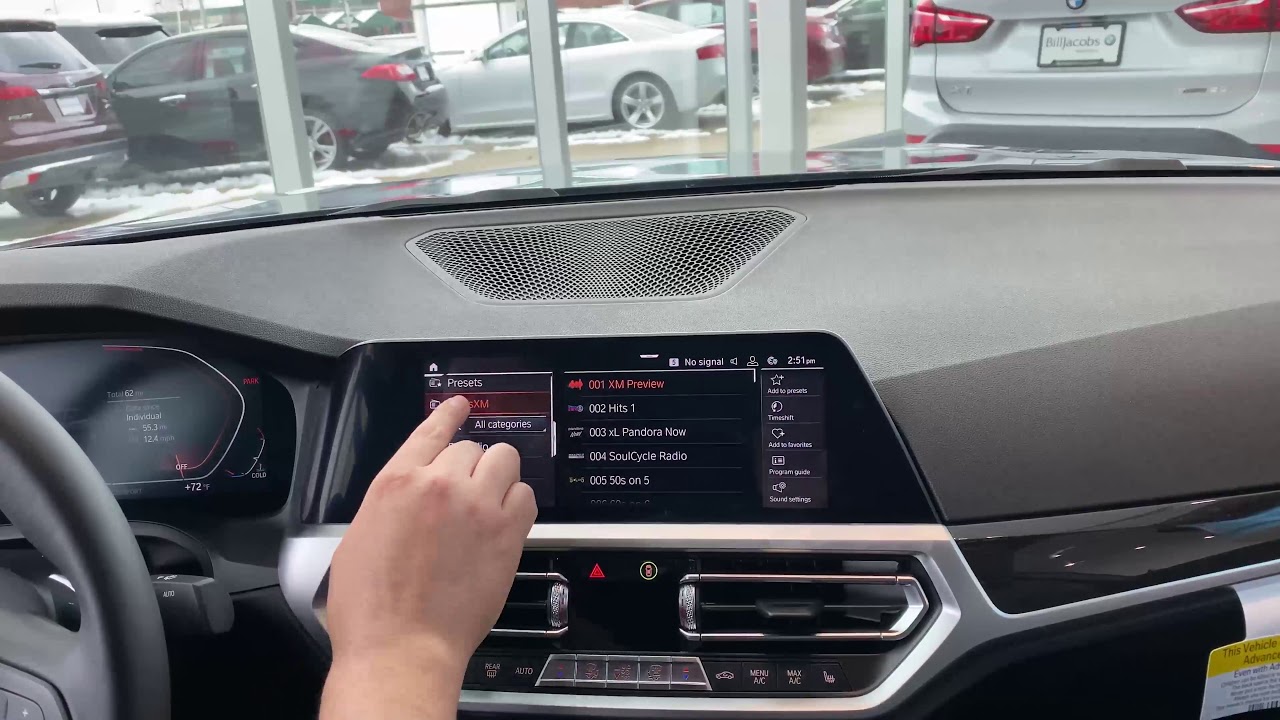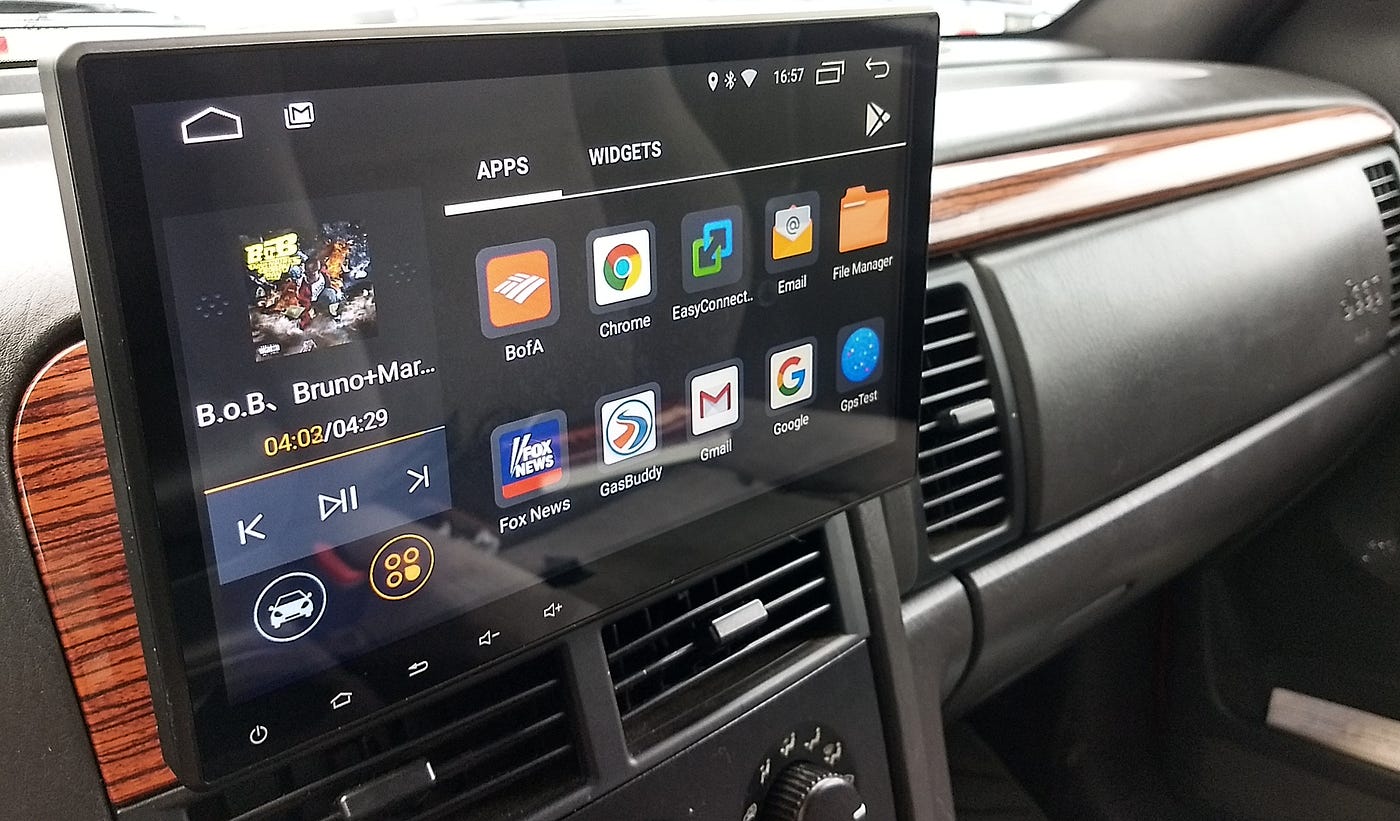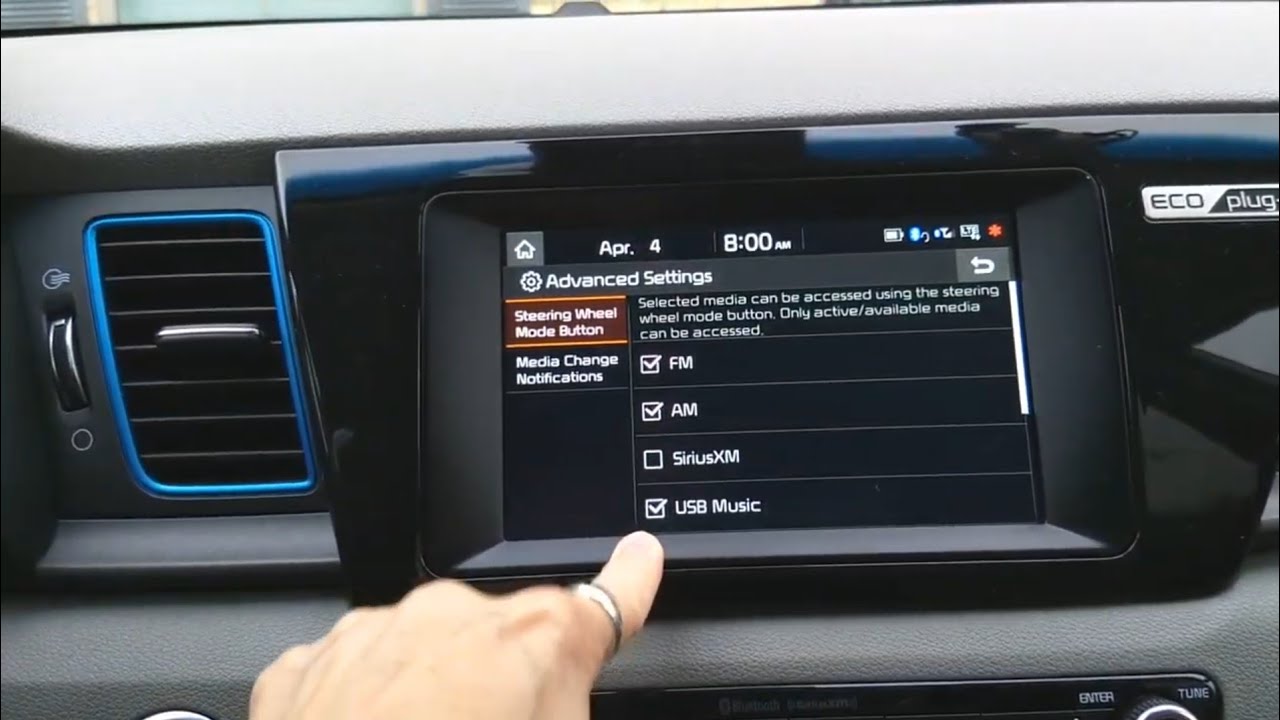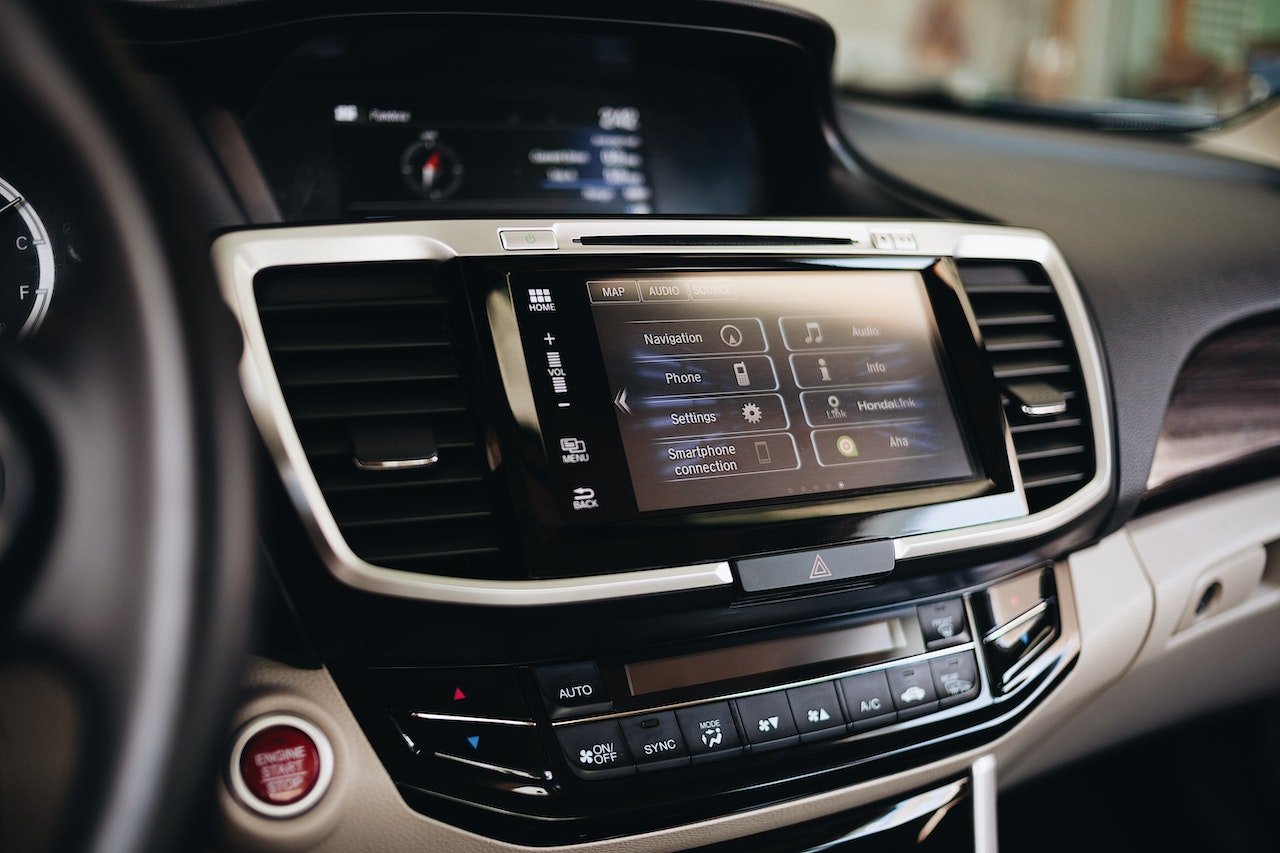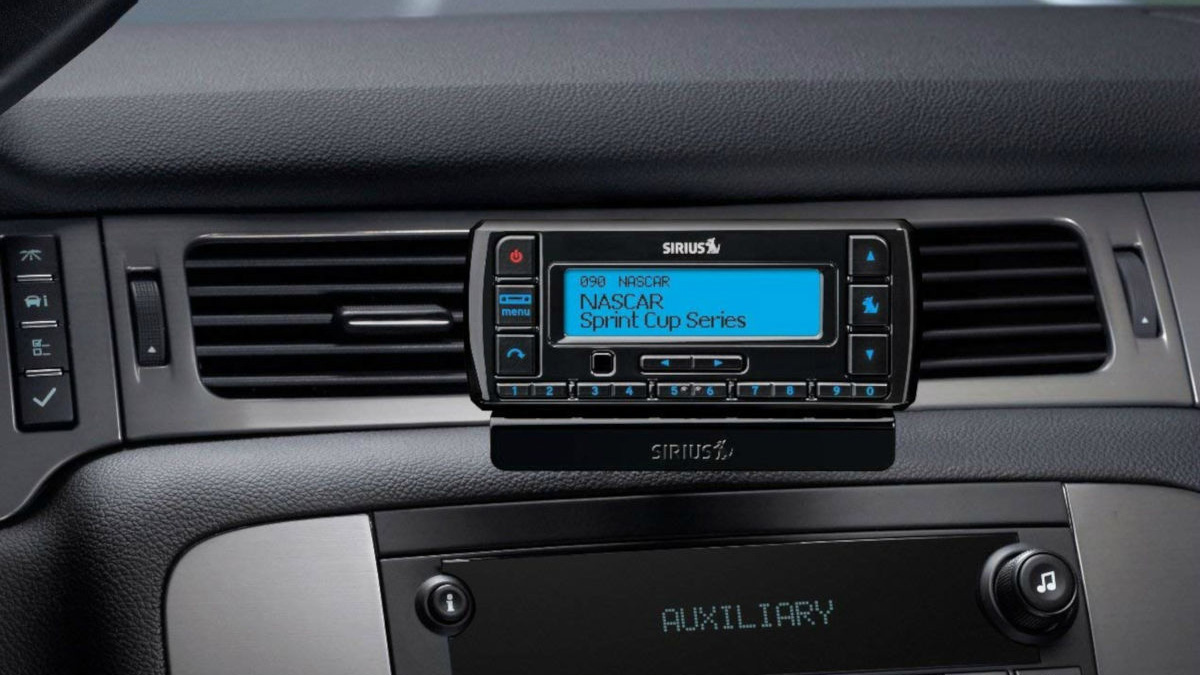Home>Devices & Equipment>Radio>How Does Sirius Radio Work
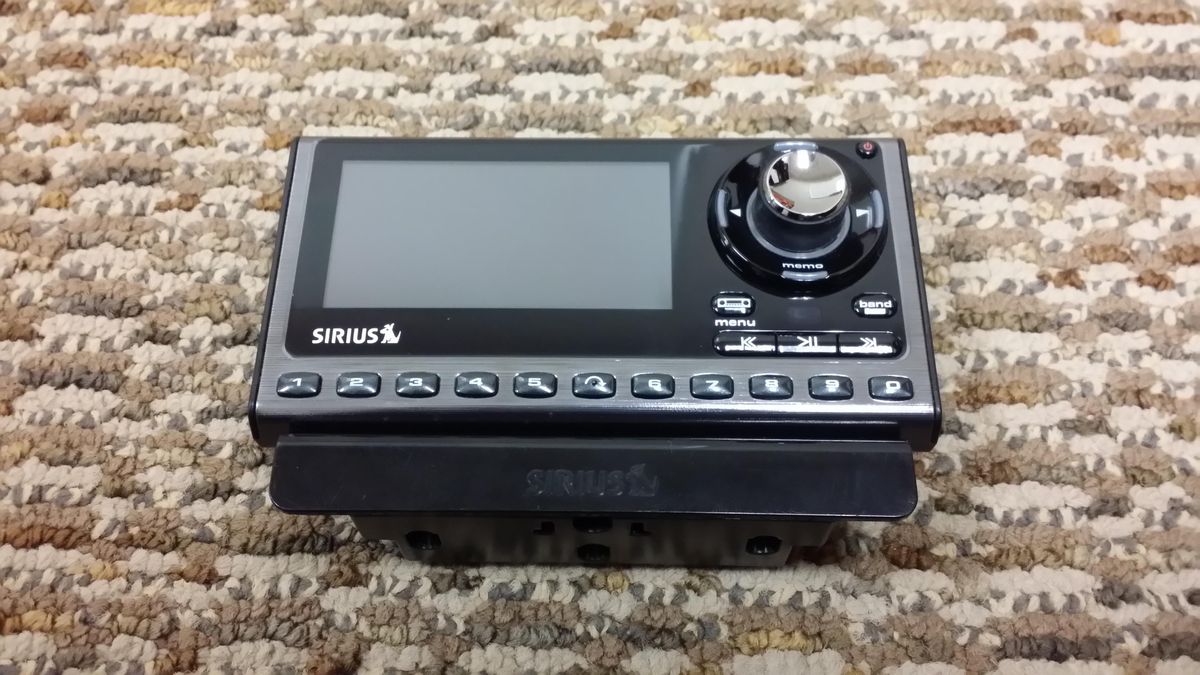

Radio
How Does Sirius Radio Work
Published: November 10, 2023
Discover how Sirius Radio works and get insights into the inner workings of this popular radio service. Experience the magic of radio with Sirius and explore its unique features and benefits.
(Many of the links in this article redirect to a specific reviewed product. Your purchase of these products through affiliate links helps to generate commission for AudioLover.com, at no extra cost. Learn more)
Table of Contents
Introduction
Welcome to the exciting world of Sirius Radio! In this article, we will explore the fascinating realm of satellite radio and delve into the inner workings of Sirius Radio. Whether you’re a long-time fan or a curious newcomer, this comprehensive guide will provide you with a deeper understanding of how Sirius Radio operates and why it has become such a prominent player in the broadcasting industry.
Sirius Radio is a satellite radio service that offers a wide range of channels and programming options to its subscribers. It has revolutionized the way people listen to radio by providing high-quality, commercial-free content across various genres, including music, sports, news, and entertainment.
Unlike traditional terrestrial radio stations, which rely on local broadcasting towers and limited coverage areas, Sirius Radio utilizes an extensive network of satellites to deliver its signal across North America. This widespread reach ensures that subscribers can enjoy uninterrupted radio reception, no matter where they are located.
So, how exactly does Sirius Radio work? Let’s dive into the technical aspects of this innovative system to gain a better understanding.
What is Sirius Radio?
Sirius Radio is a satellite radio service that offers a wide range of channels and programming options to its subscribers. It was launched in 2002 and quickly gained popularity for its extensive coverage, high-quality sound, and diverse content offerings.
Unlike traditional terrestrial radio stations, which rely on local broadcasting towers and limited coverage areas, Sirius Radio utilizes a constellation of satellites strategically positioned in geostationary orbit around the Earth. These satellites continuously beam radio signals to specially designed antennas, which then pick up the signals and transmit them to receivers installed in vehicles, homes, and portable devices.
One of the key advantages of Sirius Radio is its ability to deliver crystal-clear, high-quality audio to its subscribers. The digital nature of satellite radio allows for superior sound quality compared to traditional analog radio. Additionally, Sirius Radio offers a wide range of channels and programming options, including music channels spanning various genres, sports broadcasts, news updates, talk shows, and entertainment content.
Subscribers to Sirius Radio have access to a vast array of content, with hundreds of channels to choose from. Whether you’re a fan of rock, hip-hop, country, jazz, or classical music, Sirius Radio has you covered. Sports enthusiasts can enjoy live broadcasts of major sporting events, including NFL games, NHL matches, and NBA playoffs. News junkies can stay informed with dedicated news channels featuring up-to-date coverage from reputable sources. Additionally, Sirius Radio offers a variety of talk shows, comedy programs, and exclusive content hosted by popular personalities.
In order to access Sirius Radio, subscribers need to have a compatible receiver. Receivers can be installed in vehicles, purchased as standalone devices, or integrated into various home audio systems. Once a receiver is connected to the Sirius Radio service, users can browse through channels, create customized playlists, and enjoy uninterrupted, commercial-free listening experiences.
Now that we have a basic understanding of what Sirius Radio is, let’s delve into the technical aspects of how this innovative system works.
How does Sirius Radio work?
Sirius Radio operates on a complex system of satellites, antennas, and receivers to deliver high-quality radio signals to listeners across North America. Let’s take a closer look at the key components and processes involved in the functioning of Sirius Radio.
Satellite Communication: At the heart of Sirius Radio’s operation are its satellites. Sirius Radio utilizes three geostationary satellites positioned above the Earth’s equator. These satellites are constantly orbiting the Earth in sync with its rotation, maintaining a fixed position relative to the surface below. This geostationary orbit ensures maximum coverage and enables seamless reception of the radio signals.
Signal Transmission and Reception: Sirius Radio broadcasts its signals to the satellites, which then beam these signals towards the Earth. The signals are transmitted in the S-band frequency range, which is specifically allocated for satellite radio services. To receive these signals, users need a compatible antenna.
Antennas and Receivers: Antennas play a crucial role in receiving the signals from the satellites. Sirius Radio offers different types of antennas, including roof-mounted antennas for vehicles and home antennas for residential use. These antennas are designed to capture the radio signals and send them to the receiver.
The receivers are responsible for processing the received signals and decoding them into a format that can be played back as audio. Receivers can be standalone devices or integrated into vehicles and home audio systems. The receivers provide users with access to the wide range of channels and features offered by Sirius Radio.
Subscription and Access: In order to enjoy Sirius Radio’s content, users need to subscribe to the service. Subscribers pay a monthly fee to access the Sirius Radio service, which grants them unlimited listening to all available channels. Subscriptions can be purchased directly from Sirius Radio or through authorized retailers.
Programming and Channels: Sirius Radio offers a diverse range of programming options across various genres. It has channels dedicated to music, sports, news, talk shows, comedy, and more. Users can browse through the available channels, create customized playlists, and explore different categories to find their preferred content.
Overall, Sirius Radio’s sophisticated infrastructure of satellites, antennas, and receivers enables seamless and uninterrupted access to a vast array of high-quality radio programming. It has redefined the radio listening experience by providing users with unparalleled choice, convenience, and audio quality.
Satellite Communication
Satellite communication is the backbone of Sirius Radio’s operation. By utilizing a network of geostationary satellites, Sirius Radio is able to deliver its radio signals to a wide coverage area. Let’s explore the process of satellite communication that enables the functioning of Sirius Radio.
Geostationary Satellites: Sirius Radio relies on a fleet of three geostationary satellites positioned at an altitude of approximately 22,300 miles above the Earth’s surface. These satellites are strategically positioned to provide coverage across North America. Unlike other satellites that are in low Earth orbit and constantly moving, geostationary satellites maintain a fixed position relative to the Earth’s surface, appearing stationary from the ground. This fixed position allows for consistent and reliable communication between the satellites and the receiving devices on the ground.
Radio Signal Transmission: The first step in satellite communication is transmitting the radio signals to the satellites. Sirius Radio uses ground-based facilities to broadcast its signals to the satellites. These facilities consist of powerful transmitters that send the radio signals to the satellites through a network of ground-based antennas. The signals are encoded in a manner that allows for efficient transmission and reception without degradation in quality.
Satellite Transmission: Once the radio signals are transmitted from the ground, they travel through the Earth’s atmosphere and reach the geostationary satellites in space. The satellites are equipped with antennas that receive the incoming signals from the Earth. The received signals are then amplified, processed, and reformatted for retransmission back to Earth.
Signal Coverage: The geostationary satellites used by Sirius Radio are positioned in such a way that their coverage areas overlap, which ensures consistent reception across the entire service area. As the Earth rotates on its axis, the satellites maintain their relative positions, allowing for uninterrupted signal coverage regardless of the listener’s location within the coverage area. This means that subscribers can enjoy their favorite Sirius Radio channels while driving cross-country or even in remote areas with limited terrestrial radio coverage.
Signal Reception: Upon reaching the Earth’s surface, the radio signals are intercepted by specially designed antennas. These antennas can be installed on vehicles, homes, or portable devices. The antennas are responsible for capturing the signals from the satellites and sending them to the receivers for processing.
Satellite communication is a sophisticated and intricate process that enables Sirius Radio to provide its subscribers with a wide range of radio programming. By utilizing a network of geostationary satellites, Sirius Radio ensures widespread coverage, high-quality sound, and uninterrupted reception for an enhanced listening experience.
Signal Transmission and Reception
The transmission and reception of signals are vital components in the functioning of Sirius Radio. Let’s explore how the radio signals are transmitted from the satellites to the Earth and how they are received by the antennas installed in vehicles, homes, and portable devices.
Satellite Transmission: After the radio signals are received by the geostationary satellites, they are amplified, processed, and reformatted for retransmission. The satellites use powerful transmitters to broadcast the signals back to Earth in the S-band frequency range, which is specially allocated for satellite radio services. The transmitted signals carry a wide range of audio content, including music, talk shows, sports broadcasts, and more.
Signal Coverage: The geostationary satellites used by Sirius Radio are strategically positioned to provide coverage across North America. The coverage area extends from southern Canada to Mexico and from the east coast to the west coast of the United States. The overlapping coverage areas of the satellites ensure that subscribers can receive uninterrupted radio signals as they move within the service area.
Antennas: To receive the signals transmitted by the satellites, subscribers need to have a compatible antenna. Sirius Radio offers different types of antennas, including roof-mounted antennas for vehicles, home antennas, and portable antennas. These antennas are designed to capture the radio signals and send them to the receivers for processing.
Vehicle Antennas: Vehicle antennas are typically installed on the roof or rear window of a vehicle. They are designed to withstand various weather conditions and maintain a strong and consistent connection with the satellites. Vehicle antennas receive the signals and transmit them to the vehicle’s receiver for decoding and playback.
Home Antennas: Home antennas are designed for residential use and are usually mounted on the roof or placed near a window to ensure optimal reception. These antennas capture the radio signals and send them to the home receivers, allowing users to enjoy Sirius Radio’s programming in the comfort of their homes.
Portable Antennas: Portable antennas are ideal for users who want to enjoy Sirius Radio on the go. These compact antennas can be easily attached to portable receivers or devices, such as portable radios or smartphones equipped with Sirius Radio capabilities. Portable antennas allow users to receive signals and listen to their favorite channels wherever they are.
Overall, the signal transmission and reception process of Sirius Radio is a seamless and efficient system that ensures subscribers receive high-quality audio content across a wide range of devices. Whether you’re driving, relaxing at home, or on the move, the reliable reception and clear sound of Sirius Radio keep you connected to your favorite channels and programming.
Antennas and Receivers
Antennas and receivers are essential components of Sirius Radio’s system, facilitating the reception and processing of radio signals. Let’s explore the role of antennas and receivers in delivering high-quality audio content to subscribers.
Antennas: Antennas play a crucial role in receiving the radio signals transmitted by the Sirius Radio satellites. They are designed to capture the signals in an efficient and reliable manner. Sirius Radio offers various types of antennas to accommodate different user needs.
Vehicle Antennas: Vehicle antennas are specifically designed to be mounted on the roof or rear window of a vehicle. They are engineered to withstand the challenges of mobile usage, including vibrations, wind resistance, and changes in direction. Vehicle antennas are optimized to receive signals while on the move, ensuring uninterrupted reception even during long drives or in areas with varying reception conditions.
Home Antennas: Home antennas are designed for stationary use in residential settings. They are typically mounted on the roof or placed near a window to receive the radio signals with optimal strength and clarity. Home antennas provide subscribers with consistent reception, allowing them to enjoy their favorite Sirius Radio channels while relaxing at home.
Portable Antennas: Portable antennas are designed for users who want to access Sirius Radio while on the go. They are compact and easy to attach to portable devices, such as portable radios, smartphones, or portable Sirius Radio receivers. Portable antennas enable subscribers to enjoy their favorite channels wherever they are, whether it’s during a jog, a road trip, or a picnic in the park.
Receivers: Receivers are the devices that process the radio signals received by the antennas and convert them into audio that can be played back to the listener. Sirius Radio offers a wide range of receivers, each tailored to different usage scenarios.
In-Vehicle Receivers: In-vehicle receivers are integrated into the audio systems of cars, trucks, and other vehicles. They are designed to seamlessly integrate with the vehicle’s entertainment system, allowing users to control the Sirius Radio channels through their car’s interface. These receivers often offer additional features, such as display screens, channel presets, and options to pause, rewind, or record content.
Home Receivers: Home receivers are standalone devices that can be connected to home audio systems or operated as standalone radios. They offer the convenience of accessing Sirius Radio’s programming from the comfort of one’s home. Home receivers usually have built-in displays, user-friendly interfaces, and additional features like alarm clocks or docking stations for portable devices.
Portable Receivers: Portable receivers are designed for users who want to enjoy Sirius Radio on the go. They come in various forms, including handheld radios or devices that integrate Sirius Radio capabilities, such as smartphones or portable media players. Portable receivers offer the flexibility of accessing Sirius Radio anywhere, allowing users to listen to their favorite channels during outdoor activities, commutes, or travel.
Antennas and receivers form a crucial link in the chain of delivering high-quality Sirius Radio content to subscribers. By utilizing the right combination of antennas and receivers, users can enjoy uninterrupted access to a wide range of channels and programming options, whether they’re on the road, at home, or on the move.
Subscription and Access
To enjoy the wide range of programming options offered by Sirius Radio, users need to subscribe to the service. Let’s explore how the subscription process works and the different ways users can access Sirius Radio.
Subscription: Subscribing to Sirius Radio is a straightforward process. Users can visit the Sirius Radio website or contact their local authorized retailers to sign up for the service. Subscriptions are typically offered on a monthly basis, and users can choose from various subscription plans based on their preferences. Some plans may offer additional features, such as ad-free listening or access to exclusive content.
Activation: After subscribing to Sirius Radio, users need to activate their subscription. This involves providing their unique radio identification number (or ESN), which is typically found on the receiver or the subscription confirmation email. Activating the subscription ensures that the user’s receiver is linked to their account and enables them to access the full range of channels and features available.
Vehicle Access: Many modern vehicles come equipped with built-in Sirius Radio capabilities. These vehicles have integrated receivers and antennas, allowing users to access Sirius Radio seamlessly through their car’s audio system. Users can control the Sirius Radio channels using the car’s controls or through dedicated buttons on the steering wheel. Vehicle access provides a convenient way to enjoy Sirius Radio while on the road, with features like channel presets and display screens enhancing the user experience.
Home Access: Users can also access Sirius Radio from the comfort of their homes. This is possible by using home receivers, which can be standalone devices or integrated into home audio systems. Home receivers allow users to connect their Sirius Radio service to their home stereo systems or speakers, providing high-quality audio throughout their living spaces. Home access provides a versatile and immersive listening experience, with features like alarm clocks, display screens, and preset buttons adding convenience and customization options.
Portable Access: For users who want to take Sirius Radio on the go, there are portable receivers available. These devices come in different forms, including portable radios or smartphones with Sirius Radio capabilities. Portable receivers allow users to listen to their favorite channels while traveling, exercising, or enjoying outdoor activities. They offer the flexibility of mobile access, giving users the freedom to enjoy Sirius Radio wherever they are.
Online and Streaming: In addition to dedicated receivers, Sirius Radio can also be accessed online through a web player or mobile apps. These platforms allow users to stream Sirius Radio channels on their computers, smartphones, or tablets. Online access provides flexibility and convenience, enabling users to listen to Sirius Radio even if they don’t have a dedicated receiver or antenna.
With a valid subscription and the right equipment, users can access Sirius Radio through various channels – in their vehicles, at home, on portable devices, and even through online streaming platforms. This wide range of access options ensures that subscribers can enjoy their favorite Sirius Radio content anytime, anywhere.
Programming and Channels
Sirius Radio offers an extensive range of programming options across various genres, ensuring that there is something for everyone. Let’s explore the diverse content and channels available to subscribers on Sirius Radio.
Music: Sirius Radio boasts a vast selection of music channels covering a wide range of genres. From rock and pop to hip-hop, country, jazz, classical, and more, there are channels dedicated to every musical taste. Each genre features multiple channels, allowing users to explore their favorite music styles and discover new artists. Sirius Radio also offers specialized channels that focus on specific eras, such as 80’s hits or golden oldies.
Sports: Sports enthusiasts can stay up to date with the latest news and catch live broadcasts of major sporting events on Sirius Radio. From NFL and MLB to NHL, NBA, soccer, and college sports, there are dedicated channels that offer game commentary, analysis, interviews, and sports talk shows. Subscribers can enjoy comprehensive sports coverage and expert opinions from well-known sports personalities.
News and Talk Shows: Sirius Radio provides subscribers with access to a range of news channels that deliver up-to-date coverage from various reputable sources. From national and international news to business, politics, and entertainment news, there are channels that cater to different interests. Additionally, Sirius Radio features talk shows hosted by well-known personalities, covering topics such as politics, comedy, technology, and more.
Entertainment: Sirius Radio offers channels dedicated to entertainment programming, including comedy shows, celebrity interviews, and exclusive content hosted by popular personalities. These channels provide a mix of laughter, engaging conversations, and behind-the-scenes insights into the world of entertainment.
Specialized Channels: Sirius Radio goes above and beyond by offering specialized channels that cater to specific interests. These channels include dedicated channels for kids with age-appropriate programming, channels that focus on showcasing independent or emerging artists, channels for specific musical instruments or genres within a genre, and even channels dedicated to specific artists or bands.
On-Demand and Customized Playlists: Sirius Radio provides users with the option to create their own customized playlists and explore on-demand content. This allows subscribers to curate their own listening experiences by choosing their favorite songs, albums, or artists and creating personalized playlists. With on-demand options, users have the flexibility to listen to their preferred content whenever they want.
Exclusive Content: Sirius Radio offers exclusive content that is not available on traditional terrestrial radio. This includes exclusive live performances, in-studio sessions, and interviews with renowned musicians and bands. Subscribers can enjoy access to unique content that provides insights into the music industry and allows them to discover new artists and tracks.
With a wide range of programming options and channels, Sirius Radio ensures that subscribers have an immersive and diverse listening experience. Whether it’s music, sports, news, talk shows, or exclusive content, there is something to cater to every interest and preference.
Advantages of Sirius Radio
Sirius Radio offers numerous advantages that have contributed to its widespread popularity and loyal subscriber base. Let’s explore some of the key benefits and advantages of choosing Sirius Radio as your go-to radio service.
Wide Range of Channels and Content: One of the biggest advantages of Sirius Radio is the vast selection of channels and content it offers. With hundreds of channels spanning various genres, including music, sports, news, and entertainment, there is something to cater to every listener’s taste and interests. The diverse content ensures that subscribers have access to a wide range of programming options to keep them entertained and informed.
Enhanced Audio Quality: Unlike traditional terrestrial radio, which often suffers from signal interference and limited audio quality, Sirius Radio provides crystal-clear, high-quality sound. The digital nature of satellite radio ensures that subscribers enjoy superior audio quality with minimal static, allowing for an immersive and enjoyable listening experience.
Widespread Coverage: Sirius Radio’s extensive network of satellites ensures widespread coverage across North America. Whether you are traveling cross-country or in remote areas with limited terrestrial radio stations, Sirius Radio provides uninterrupted signal reception. The seamless transition between regions allows subscribers to enjoy their favorite channels and programming without any geographical limitations.
Commercial-Free Listening: Tired of constant interruptions from advertisements on traditional radio? Sirius Radio offers commercial-free listening on most of its channels. Subscribers can enjoy uninterrupted music, news, and talk shows without the annoyance of commercials. This ad-free experience enhances the enjoyment and engagement with the available content.
Exclusive and Specialized Content: Sirius Radio provides access to exclusive content, including live performances, in-studio sessions, and interviews with renowned artists and bands. Subscribers can indulge in unique and behind-the-scenes insights into the music industry. Additionally, specialized channels catering to specific interests, such as genres or artists, allow for a personalized and immersive listening experience.
On-Demand and Customized Playlists: Sirius Radio allows users to create their own customized playlists and access on-demand content. This feature gives subscribers the flexibility to curate their listening experience by selecting their favorite songs, albums, or artists and creating personalized playlists. The on-demand options provide convenience and choice, allowing users to listen to their preferred content whenever they want.
Accessible Across Multiple Devices: Sirius Radio can be accessed through various devices, including car receivers, home audio systems, portable devices, and online streaming platforms. This versatility ensures that subscribers can enjoy their favorite channels and programming not only in their vehicles but also at home and on the go. The ability to access Sirius Radio from multiple devices adds convenience and flexibility to the listening experience.
With its wide range of channels, high-quality sound, extensive coverage, and exclusive content, Sirius Radio offers a superior radio listening experience. Whether you’re a music lover, sports enthusiast, news junkie, or looking for entertaining talk shows, Sirius Radio provides an array of options to cater to your preferences and enhances your overall radio listening enjoyment.
Limitations and Challenges
While Sirius Radio offers numerous advantages, it also faces certain limitations and challenges that are important to consider. Let’s explore some of the potential drawbacks associated with Sirius Radio.
Subscription Cost: One of the potential limitations of Sirius Radio is the cost associated with the subscription. Compared to traditional terrestrial radio, which is generally free, Sirius Radio requires a monthly subscription fee. While the cost may vary depending on the subscription plan and additional features, it is an additional expense that users need to take into account when considering Sirius Radio as their radio service of choice.
Service Coverage: Although Sirius Radio provides widespread coverage across North America, there may still be areas where the signal reception is limited or compromised. Tall buildings, underground parking, tunnels, and heavily wooded areas can obstruct the satellite signal, resulting in temporary signal loss or lower signal quality. While the coverage is generally extensive, it’s important to be aware that some challenging geographic locations may have reduced signal strength.
Dependence on Satellite Signal: Unlike traditional terrestrial radio, Sirius Radio relies entirely on receiving signals from satellites. This means that any disruption or technical issues with the satellites can impact the availability of the service. Extreme weather conditions, power outages, or satellite malfunctions can result in temporary disruptions of the service, leading to interrupted listening experiences. It’s important to note that while such occurrences are relatively rare, they are a possibility that comes with relying on satellite technology.
Limited Localized Content: Sirius Radio’s programming is primarily focused on providing a wide range of national and international content. While this offers a diverse selection of channels and programming options, it may lack localized content specific to regional interests or community-focused programming. Local news, weather updates, or community events are not as prevalent on Sirius Radio compared to traditional terrestrial radio stations that cater to specific localities or regions.
Data Usage and Internet Connectivity: Accessing Sirius Radio through online streaming platforms or mobile apps requires a stable internet connection. Users must consider their data usage and internet connectivity, as streaming audio content can consume significant amounts of data, especially when using mobile networks. Subscribers who have limited data plans or are in areas with poor internet connection may face challenges in enjoying uninterrupted streaming on mobile devices.
While Sirius Radio offers a host of benefits, it is important to be aware of its limitations and challenges. Considering factors such as subscription cost, service coverage, reliance on satellite signals, limited localized content, and data usage can help individuals make an informed decision about their radio listening preferences and whether Sirius Radio aligns with their specific needs and circumstances.
Conclusion
Sirius Radio has revolutionized the radio listening experience with its comprehensive coverage, wide range of channels, and high-quality audio. By harnessing advanced satellite technology, Sirius Radio provides listeners with unparalleled access to diverse programming options across various genres.
From music enthusiasts and sports fans to news junkies and entertainment seekers, Sirius Radio offers something for everyone. The extensive selection of channels ensures that subscribers can easily find content that caters to their specific interests and preferences.
The advantages of Sirius Radio, such as commercial-free listening, exclusive content, on-demand options, and accessible across multiple devices, contribute to a personalized and immersive listening experience. The superior audio quality and widespread coverage enable subscribers to enjoy uninterrupted and crystal-clear sound wherever they go.
However, it’s important to consider certain limitations and challenges, including the cost of subscription, potential signal limitations in certain geographic areas, and dependence on satellite technology. Understanding these factors can help individuals make informed decisions about their radio listening preferences.
Overall, Sirius Radio has transformed the way we listen to radio, offering an extensive array of programming options and enhancing the overall listening experience. Whether you’re driving, relaxing at home, or on the move, Sirius Radio keeps you connected to a world of music, news, sports, and entertainment.
So, if you’re looking for a radio service that goes beyond traditional terrestrial radio, offers diverse and personalized content, and ensures uninterrupted reception across a wide coverage area, Sirius Radio is definitely worth considering. Embrace the world of satellite radio and immerse yourself in the vast landscapes of audio entertainment that Sirius Radio has to offer.

